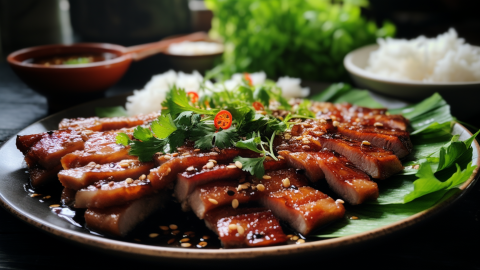What should not be eaten with gallstones and cholecystitis?
Generally, patients with gallstones and cholecystitis should avoid foods high in cholesterol, high-fat foods, spicy and stimulating foods, gas-producing foods and coarse fiber foods, acidic foods, and sugars. A detailed explanation is as follows:

1. High-cholesterol foods
Patients with gallstones and cholecystitis should try to avoid high-cholesterol foods such as animal offal, egg yolks, preserved eggs, chocolate, and caviar. These foods may increase the burden on the gallbladder, thereby triggering or worsening symptoms of cholecystitis.
2. High-fat foods
These include fatty meats, fried foods, pan-fried foods, and cream cakes. High-fat foods can stimulate gallbladder contraction, possibly causing severe biliary colic. Additionally, instant food products such as instant noodles often contain high levels of oil and fat and should also be avoided.
3. Spicy and stimulating foods
Examples include chili peppers, pepper, Sichuan pepper, mustard, ginger, raw garlic, as well as stimulants such as tobacco, alcohol, and coffee. These foods and beverages may cause excessive secretion of gastric acid, leading to gallbladder contraction, which could worsen the condition of cholecystitis.
4. Gas-producing foods and coarse fiber foods
Gas-producing foods such as onions, scallions, and raw garlic, and coarse fiber foods such as sweet potatoes, buckwheat, and oats may all exacerbate gastrointestinal bloating symptoms in patients with gallbladder disease or stimulate the gallbladder to produce more cholecystokinin, thereby inducing biliary colic.
5. Acidic foods and sugars
Acidic foods such as lemons, waxberries, vinegar, oranges, strawberries, and kiwifruits, as well as sugary foods like white sugar, brown sugar, and black sugar, may stimulate motility of the stomach and duodenum, causing gallbladder contraction and increasing the risk of gallbladder colic. Therefore, patients with gallstones and cholecystitis should also limit their intake of these foods.
In daily life, it is important to strictly control one's diet, maintain regular作息, engage in appropriate exercise, and undergo regular follow-up examinations to monitor changes in the condition.




